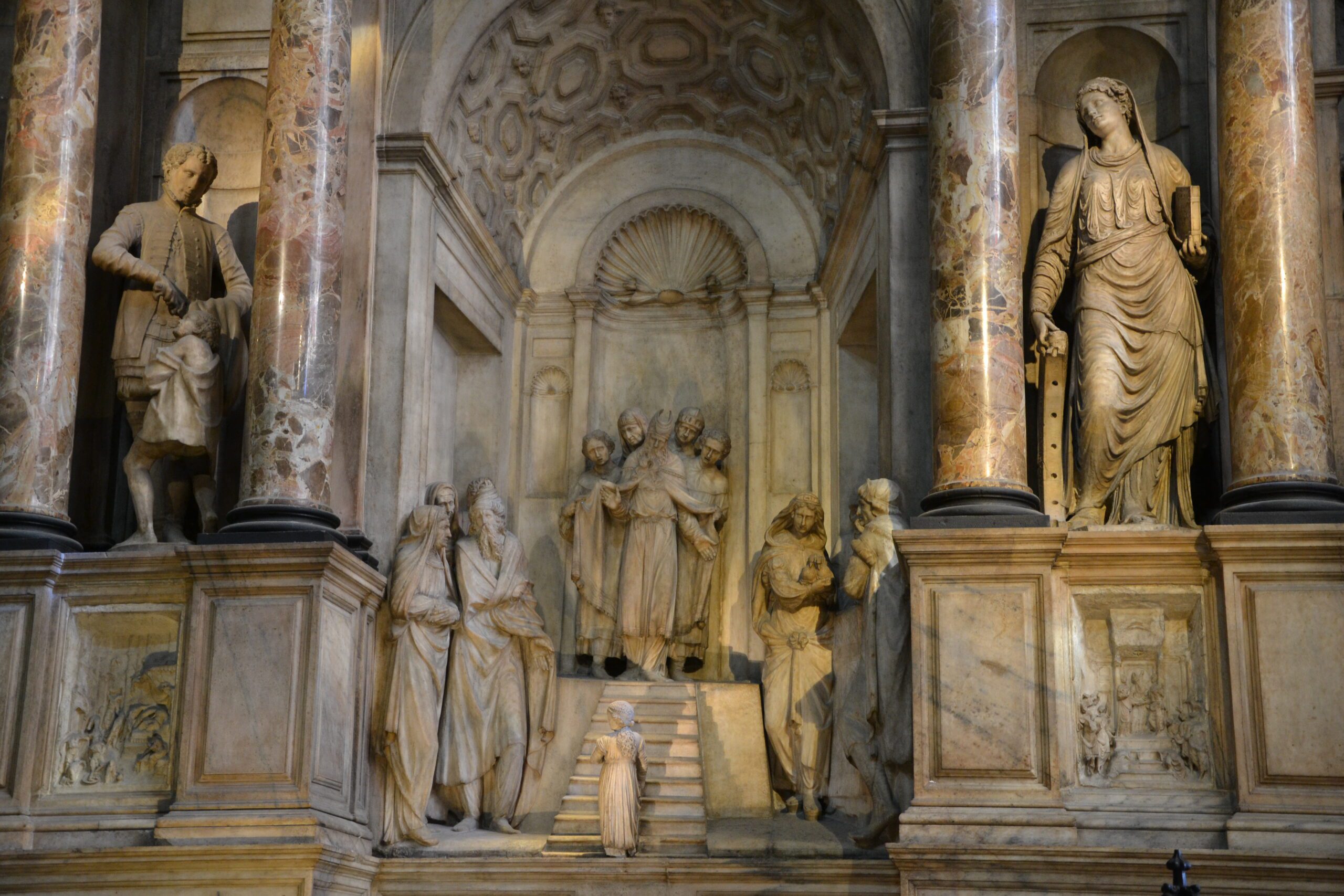Tag: Saints
She Who Received

Addressing the Father, Saint Catherine of Siena said in her Dialogue, “I am she who is not. . . . You alone are he who is; my being and every other grace that you have given me beyond my being I have from you, which you gave and give to me through love, and not because it was owed to me” (Ch. 134; cf. Exod 3:14). Since only God exists by his own power and because everything else exists only because he created, Catherine recognized that everything she was and had came from God. To sin—to turn away from God and towards oneself—would be to turn toward nothingness.
What we are apart from God is an abyss of nothingness. The more we retreat from God to follow our own whims and desires, the lesser and lesser we become. God owes us nothing; everything he gives he gives out of love. If someone wants to be or become anything, she must totally deny herself—she must become she who is not—in order to cling entirely to God: he who is. She must make herself completely dependent on his love.
No one recognized this more than the Immaculate Virgin Mary, whom God joined to himself from the instant she was conceived in the womb. Her Immaculate Conception might have been fitting, but God did not owe her anything. Nor was it absolutely necessary for him to do this in order to redeem the human race. What he did for her he did out of sheer love. He did it out of love for her, whom he loved above all creatures. He did it out of love for himself since, aside from Christ’s human nature, Mary glorified him more than any other creature (Luke 1:46). He did it out of love for us, her children.
For Eve was the mother of all the living who later die and turn to nothingness (Gen 3:20). At her instigation, our first parents sinned when they tried to be something apart from God. From them, we inherited original sin. But Mary, the new Eve, became the Mother of all who live by grace (Rev 12:17). She emptied herself of her will and accepted the will of God announced by the angel (Luke 1:38). Her soul “magnified the Lord,” who, she said, had favored her “lowliness.” For it was he who “scattered the proud in the imagination of their hearts” and “cast down the mighty from their thrones” in order to “lift up the lowly”—those who count themselves nothing before God (Luke 1:46–55). It was Mary who instigated her Son to begin his ministry when she commanded the servants at Cana to be obedient to Jesus, to be nothing before her Son, he who is (John 2:5). Just as the first Adam had done when—after he first turned the human race away from its Creator—he named the first Eve “Mother of all the Living,” so the new Adam—once he turned the human race back to the Father—named the new Eve our Mother when he gave her to his beloved disciple (John 19:25–27). All of us who turn, not toward ourselves and to nothingness but to he who is (cf. John 18:6), are her children.
But the foundation for Mary’s Motherhood began with the grace God gave her at her conception. This was what the angel acknowledged first: “Hail, full of grace, the Lord is with you” (Luke 1:28). She received the human nature that God first gave to Adam and Eve, but not original sin. Through her Immaculate Conception, God gave Mary grace to receive everything from him and from him alone. By giving her this grace, he prepared her to receive he who is. By his power alone, she would receive everything that she was. By his power alone, Mary would later conceive he who is in her womb. By his power, she who is not would hold he who is in her arms.
Image: Image: Carlo dell’Orto, La Presentazione di Maria al Tempio (CC BY-SA 3.0)
Originally posted on Dominicana Journal
